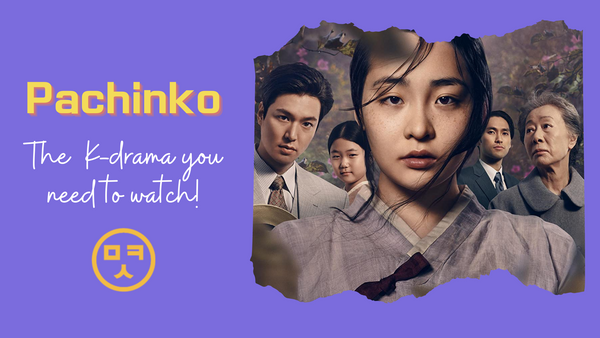Pachinko - The kdrama you need to watch! 🤩

I’ll never forget the first time I read Min Jin Lee’s Pachinko. Clocking in at almost 500 pages, I thought it would take me at least a week to get through it. Within two days I was done.
Published in 2017, the book is historical fiction and follows the story of a Korean family that immigrates to Japan over the course of nearly a century. Tied up in the multi-generational story are themes around racism, stereotypes and the use and abuse of power – themes that are still as powerful and relevant today as they were in the context of early 20th Century Korea and Japan.

This is not a fun read. It’s powerful and emotional. The characters across all generations face intense hardship in the face of events like the Japanese occupation of Korea, World War II and the Korean War. These events are often the catalysts for the characters’ actions, such as moving from Korea to Japan. And one thing this book does well is give you information to learn about these events and hardships, without feeling like you are sitting in a Korean history lecture.
While reading I learned about the mistreatment of Koreans in Japan during this time – the inherent racism and social exclusion immigrants faced. I learned about the persecution of Christians in Japan who refused to worship the Japanese emperor. I was really surprised to learn just how entwined Korean and Japanese history is – especially in the early 20th Century.
All of this is told through the lens of characters who are deeply flawed, but also very relatable and understandable. I even felt a lot of empathy for the almost villainous Koh Hansu, who seems to have his hands on everyone’s puppet strings (interestingly Hansu is played by heart throb Lee Minho in the Apple TV adaptation, which was just released).

For me, the overriding theme is that everyone is just doing the best they can with what they have to survive. Whether faced with famine, war, immigration, violence or poverty, each of the core characters simply do what they have to continue to exist in a world that in a lot of ways doesn’t want them, or at the least looks down on them. It is very easy to feel empathy for every one of them, and that’s where the true strength of this book lies.
The television adaptation of Pachinko can be streamed via Apple TV+ now.
If you’ve read Pachinko or seen the TV series already, let us know what you think.
Written by Sarah Petchell
My Korean Student | Journalist
